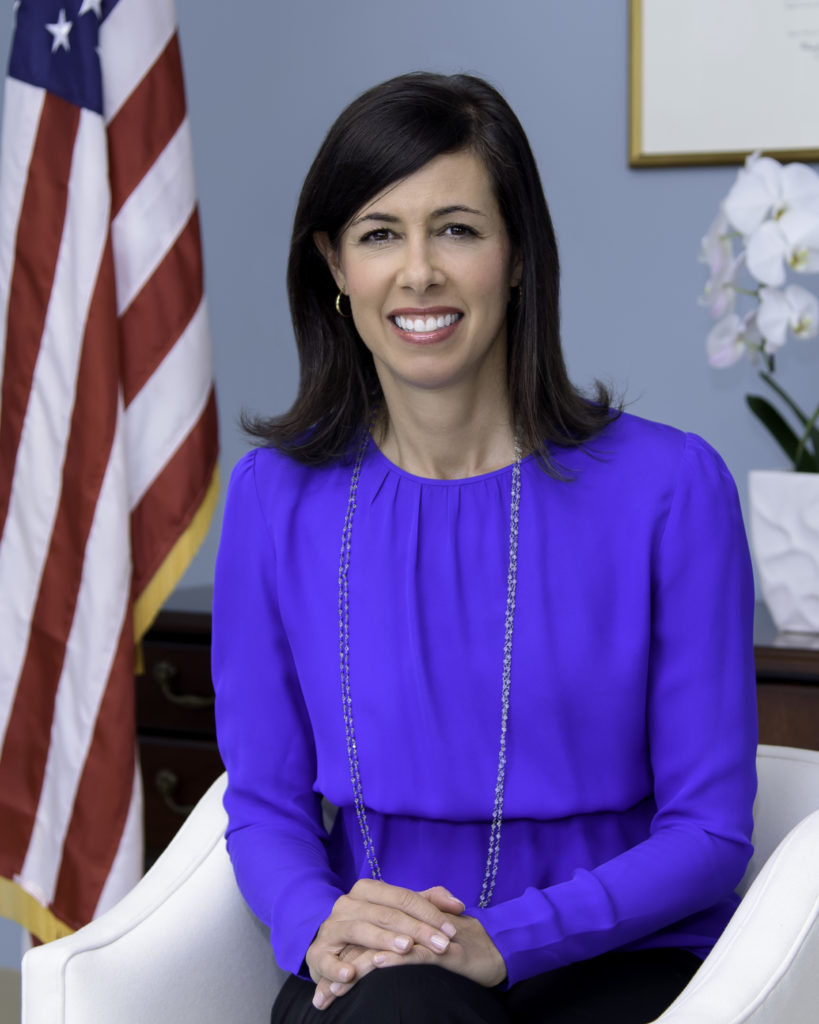
A number of you have asked about the vibe of the NAB Show happening this week in Las Vegas. Similar to CES, these large conferences take on a certain theme, or even a character if you hang around, listen to attendees and exhibitors, and take note of the environment around you.
This year, I’ve feeling two emotional strains here at the LVCC, as well as at the usual hotels – the Bellagio, Wynn, and Encore. First, there’s a palpable sense that it’s great to be back together. I’ve “seen” many attendees on Zoom, Teams, and GoToMeeting these past couple years. But to see these same friends, colleagues, partners, and clients IRL – in person – has been a true joy for just about everyone you meet.
The other emotional strain has to do with the immovable force of change. You can feel it in the air as well. It isn’t just about seeing sessions on TikTok, the increasingly louder digital footsteps, and confronting changes in the dashboard.
There are leadership changes, too. We’re watching the passing of the baton at the top of the NAB. Gordon Smith (pictured) has stepped down. On Monday, he was honored with the NAB’s highest honor: the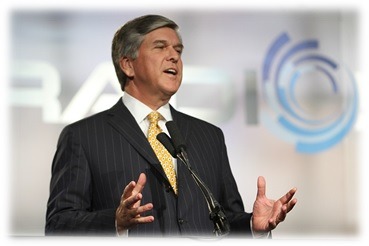 Distinguished Service Award. I was fortunate to see him accept it. The Senator offered a very emotional, heartfelt speech that was moving and meaningful.
Distinguished Service Award. I was fortunate to see him accept it. The Senator offered a very emotional, heartfelt speech that was moving and meaningful.
His replacement is Curtis LeGeyt who gave a wonderful state of the industry speech at that same gathering. Curtis is a fan of broadcasting, and importantly, a believer in radio – what it’s been and what it still can be.
Yesterday, he fittingly interviewed the incoming Chairwoman of the FCC, Jessica Rosenworcel. As you might know, she is the first woman to hold this esteemed position. She’s a native of Hartford, and received her law degree from NYU.
Full disclosure: I was unable to attend the session, but fortunately, intrepid Inside Radio correspondent Paul Heine showed up. So, thankfully, I have his coverage, linked here.
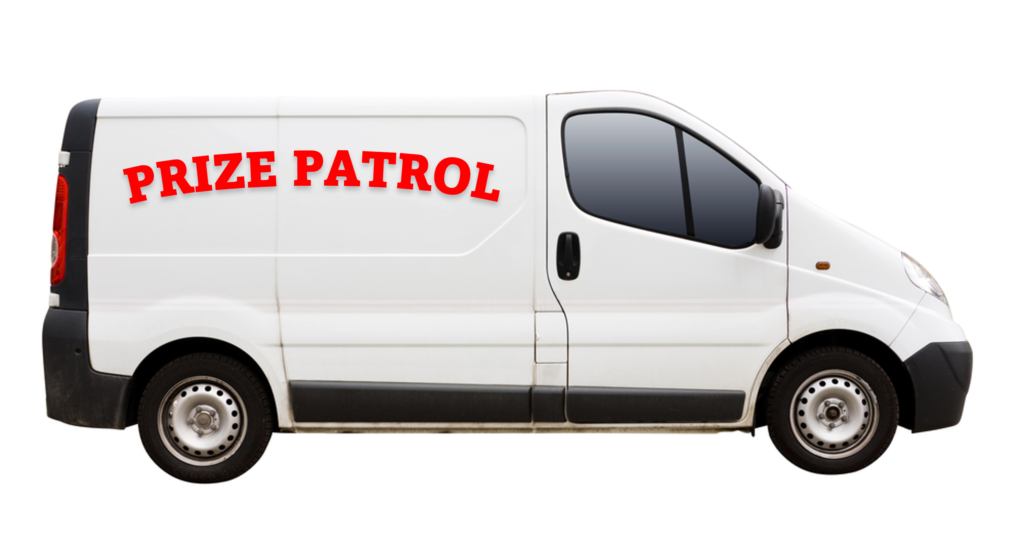 In her fireside chat with Curtis, Rosenworcel revealed she’s been a lifelong radio listener, especially growing up in Hartford. In fact, she was what Heine referred to as “an active radio contest participant.”
In her fireside chat with Curtis, Rosenworcel revealed she’s been a lifelong radio listener, especially growing up in Hartford. In fact, she was what Heine referred to as “an active radio contest participant.”
She admitted trying to win contests on WTIC-FM, even urging her parents to put station bumper stickers on the family cars in the hope of being spotted by WTIC-FM’s “Prize Patrol.”
Sorry, Paul – you’re too tasteful to say it. But I’m not:
Chairwoman Rosenworcel was once a “contest pig.”
On the surface, the term has always been derisive. But in reality, regular contest players are hyper-active radio listeners – uber P1s. They know a station’s programming – right down to the clocks – inside and out. These days thanks to kinder PPM nomenclature, these consumers are known as “heavy deeps.”
In the interview, Rosenworcel revealed she was always trying to be that lucky 9th caller to score a pair of concert tickets. And as she told Curtis, “Here I am, years later, overseeing the FCC contest rules for radio. So things I didn’t anticipate come full circle.”
I’d like to remind the Chairwoman that after winning a radio contest, she must still wait a mandatory 30 days before being permitted to win again. After all, fair’s fair, even for FCC Commissioners.
Rosenworcel has firm opinions about the import of local journalism, noting that mega-tech companies are using broadcast (and newspaper) content to make billions without paying for it. LeGeyt pointed to that same inequity during his message, quoting WTOP GM Joel Oxley.
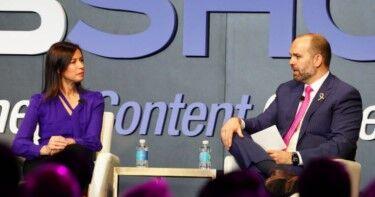
When LeGeyt posed the question I would have asked – “How could the FCC help bring local radio into connected cars?” – the Chairwoman made this comment:
“We can get content from all sorts of places in the universe right now at a moment’s notice. But there’s still something so special about a voice in the air that is truly local. And when I get in my car, that’s what I want to hear. I don’t want to hear something from far afield. I want to hear someone who’s talking about what’s happening in my town in my community where I live.
“And I think that radio and its relationship to the car in particular is really important. And as services evolve, and our cars become more connected, figuring out how radio evolves along with the automobile industry I think is really important.”
But it was when LeGeyt asked how radio can compete in a media landscape that has become hyper-competitive over the last decade or more, she responded with this challenge to broadcasters:
“Your power is you’re not like everyone else. What makes you unique is that you’re local. And what’s even more extraordinary is that you’re trusted because of it. And that’s a rare thing in today’s media environment.
“And I would just say seize on it, double down on it, let us help you continue to be local and trusted, because I think that’s important for all of us having the information we need to conduct our lives and its even important for our democracy.”
Indeed.
And yet when you speak with a number of broadcasters, some of whom work for the biggest companies in radio, they may tell you “local” is overrated; that entertainment and information need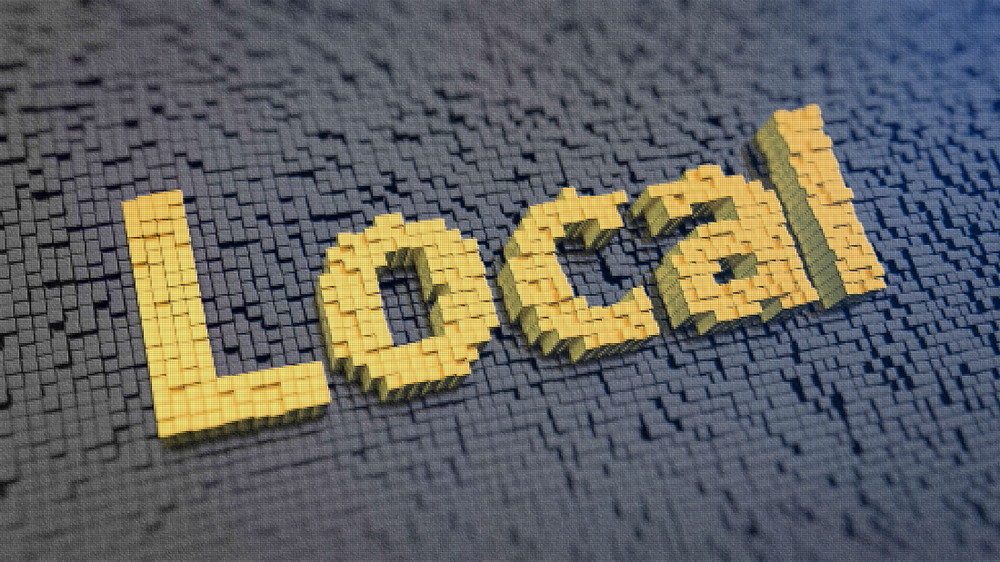 not be hometown-centric. They’ll point to the value of syndicated programs, as well as the notion that voicetracking can be financially efficient without being noticeable to listeners.
not be hometown-centric. They’ll point to the value of syndicated programs, as well as the notion that voicetracking can be financially efficient without being noticeable to listeners.
And to a degree that’s true. You can carry “Bob & Tom” or “The Bob & Sheri Show” in morning drive, and remain intensely local the rest of the day and on the weekend. But when national shows becomes a station’s main diet, it is giving up any hope of having a bona fide local presence.
The same is true in public radio, too. When national programming from NPR, APM, and the BBC become the dominant content on a station’s schedule, something important is being lost in translation.
Take it from someone who knows all about the unique value of a strong local presence because she grew up with it.
For radio to survive – and thrive – a commitment to doing great hometown radio is the optimal way to win loyalty.
And giving away concert tickets.
- Media And Technology In 2025: Believe It Or Not! - April 18, 2025
- In Radio, You Just Never Know - April 17, 2025
- The Secret To Making A Great Podcast (And Great Radio) - April 16, 2025




We referred to them as “P1’s”.
You are correct, Jeff, because that’s what they are. Made that correction – thanks for the nudge.
Wonderful to have people who have been part of / in love with radio at the top! I started in Bristol/Hartford/Univ. of Hartford and operate/experiment with 1220watx.com Hamden/New Haven, with pride and potential.
Couldn’t agree more, Clark.
Clark, I always appreciate your comments and LOVE your enthusiasm! When I saw the link to your station, I knew I just HAD to listen! Everything displays (showed CCR playing) but no audio. Does the station not stream outside the local area? (I’m in San Diego. Maybe when you decided to make a local station, you really DID mean for locals only!)
Update to my above post. Think the problem was with my computer. Rebooted it and, voila, 1220watx.com! Sounds GREAT! Thanks for letting us know about the station!
To the Commissioner’s remarks, especially about local, one can only say, “Amen.” Radio industry execs, the game is yours to lose.
One point you made, Fred, that I think needs nuance: You’re spot-on with urging music stations to bulk up their local dimension and nurture the talent in-house. The less voice-tracked elsewhere, the better. For public (mainly, NPR member) stations, local voices are necessary for local stories, of course, but in our modern world of major travail–war, pandemic, autocracy, etc–the need for trusted national voices is greater. Those newscasters, and the highly professional teams behind them, are the ones I want to hear when I tune in every morning.
That can’t be the entire diet, though. My good fortune was to be at one of those member stations that, then and still, puts local news and music on just as high a rung as the obligatory morning and afternoon anchor news shows. (Shout-out to KALW!) I would love to see them (and, crucially, the listeners) take advantage of HD multicasting so they could avoid the interleaving necessary on a single channel, but in the meantime they show how far the envelope can be pushed to preserve the crown jewel of localism.
I would add that even if someone is running a syndicated program (or format) there is always going to be a way to include local content. In fact, not having to worry about what’s being fed to the transmitter the rest of the time frees up local talent resources to create that content.
All a station has to do is WANT to do it. And every station should want to.
Sadly the “radio execs” mentioned here are hardly likely to head back to the home office and say “Hey, we’re gonna now spend millions to be local”. They’ll continue to look at the spreadsheets and hope to make their next bonus. The FCC made a mistake (among many) in eliminating the “home studio” rule and has the “non-profits” raking in millions in donations from their one studio for hundreds of stations while AM/FM becomes more and more populated by long distance broadcasters. The NAB seems hell-bent on promoting relaxed ownership rules so companies can continue to scoop up the competition and centralize its operations. It seems that there’s a big disconnect between what is -and what should be, and we can only hope that the fresh smell of “local” coffee will pervade the broadcasting industry. I wish I had been there to hear the contest comments from the new FCC commish, and hear the promotions people in the audience applaud. Oh, wait. Promotions people have mainly been eliminated.
There’s a lot of hard truth here. Broadcasters need more level-setting against outside competition – streaming, podcasts, satellite radio – in the form of dereg. But what effect would that have on the consumer-facing part: the listening experience. I agree with you, Dave, that if the net effect on radio is more of the same with less local programming flavor, we know how this might end up. Having more stations in a market is a privilege – so how will broadcasters deal these “new stations?”
As a “heavy deep” prize pig that won more albums, concert, movie and sporting event tickets, t-shirts, TONS of money, and even a motorcycle, I LOVE that someone with a real love and enthusiasm for local radio–while also understanding its very real challenges–is heading the FCC and championing the industry. I like to think she may have been “caller number 8” to my (correct caller) “number 9” back in the day.
Quick fun, personal story. A real thrill for me was when the company I had been working for moved me to working from home, which was the same home I grew up in as I had moved back to be a caregiver for my (now 102-year-old) mom. The same local station I was on now decades later was one of the main stations I listened to and won contests from as a kid. Through the miracle of modern technology, I would log into the station’s phone network and forward the contest line number to my home phone. So, if you can imagine this, instead of ME calling into that same station I used to listen to as a kid from my home number to win prizes, I was now giving out prizes over those over that same station–those very same towers–with people calling my home phone number–the exact same number I was calling in from as a kid! True story. And if I didn’t live it, I wouldn’t believe it myself. Gotta love radio. Gotta love and cheer on my former prize pig opponent, Jessica Rosenworcel
Great story, David. I’ll bet the Commish has some great stories, too.
Might we see a LinkedIn profile that says “FCC Chairman/contest pig”?
Let me circle back to you on that, Bob.